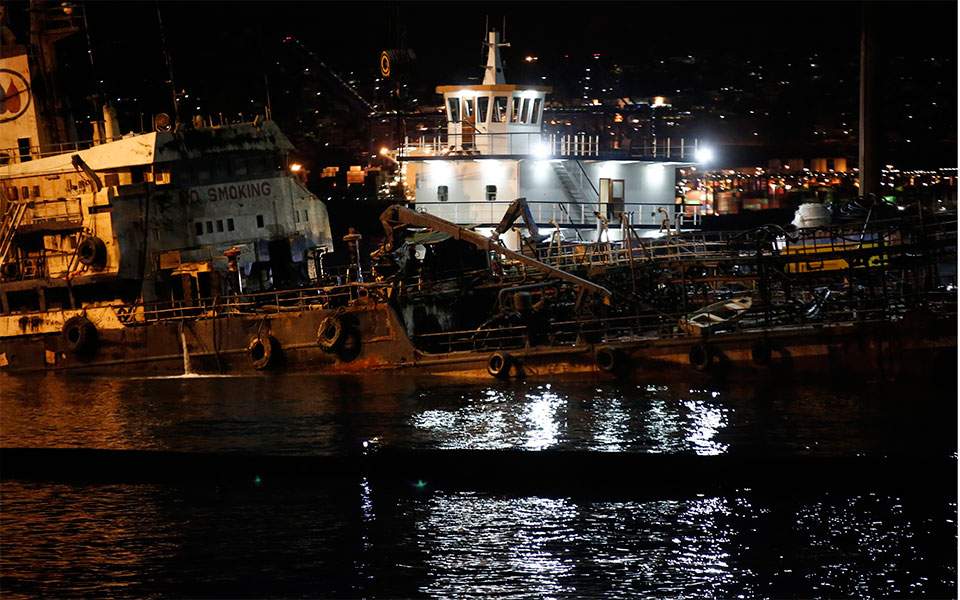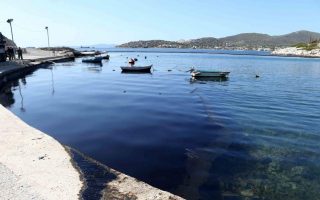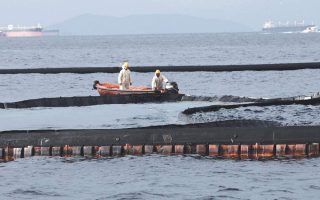Gash in hull of sunken oil tanker raises questions

Nearly three months after the fuel tanker Agia Zoni II sank off the island of Salamina, prompting an oil spill that polluted much of the Athens riviera, a shipping expert and a prosecutor who examined the vessel determined the presence of a large gash in its hull, Kathimerini has learned.
Experts involved in an inspection of the vessel, which was lifted out of the sea and towed to Salamina last week, told Kathimerini that the Agia Zoni appeared to have been in good condition and that some dents to the hull could have occurred during its removal from the seabed.
They did not rule out the possibility that the ship sustained the damage by striking rocks while it was sinking.
However a video broadcast by Skai TV last night indicates that, apart from the dents, the hull had sustained a large gash, some 1.5 meters in length.
The owner of the Agia Zoni, Thodoris Kountouris, insists that the vessel had been entirely seaworthy and sank due to foul play.
Kountouris has asked that an independent expert investigate how the vessel sustained the gash, Kathimerini understands.
He had wanted to dispatch divers to examine the ship’s hull but, according to sources, the planned operation was called off as the ship’s hull would not have been visible to divers due to its position.
The chief engineer of the Agia Zoni II, one of two crew members who were on the vessel when it sank, claimed in his deposition to have heard a noise just before the ship started foundering, “as if the engine room door slammed shut.”
A prosecutor who has been tasked with determining the circumstances that led to the vessel’s sinking has yet to complete his investigation.
Those that incurred losses due to the pollution caused by the sinking in September of the Agia Zoni II tanker are able to receive compensation following the approval of funding by the International Oil Pollution Compensation Funds earlier this month.
The oil slick covered more than 20 kilometers, stretching from Piraeus to beyond Glyfada on the southern coast of Athens, and leading to a public ban on several popular beaches which has since been lifted following a cleanup.





